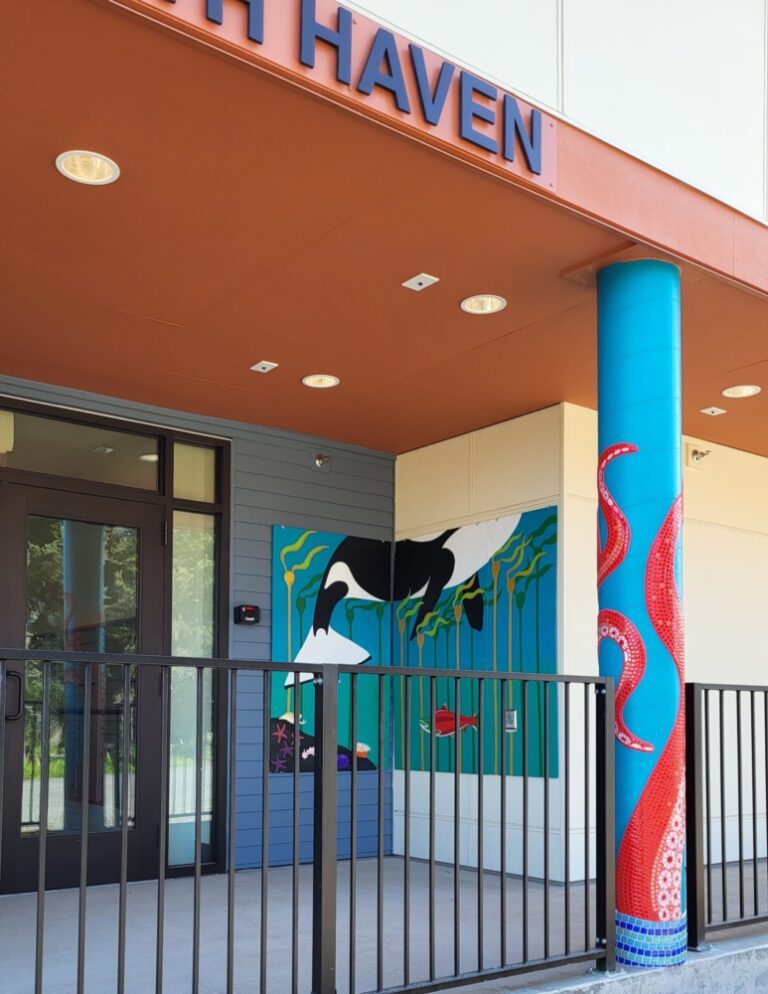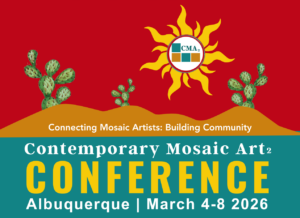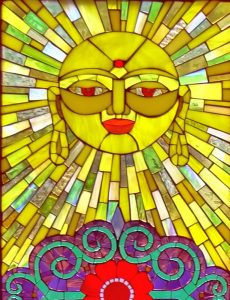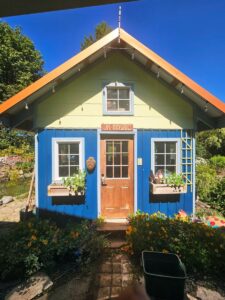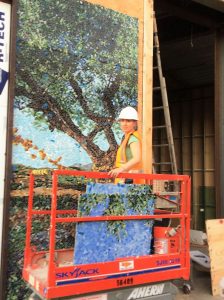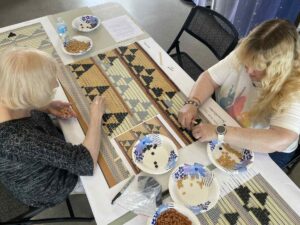Nearly a year ago, I was selected as one of two artists to create art for a new low-income housing complex being built by OlyCAP (Olympic Community Action Programs) in Port Townsend, WA. The proposal process was finalized in December and I got to work in January 2023. First, during a weeklong group residency at Centrum, I worked with kids ages 6-12 at a local YMCA after-school program making sea stars with recycled glass tiles.
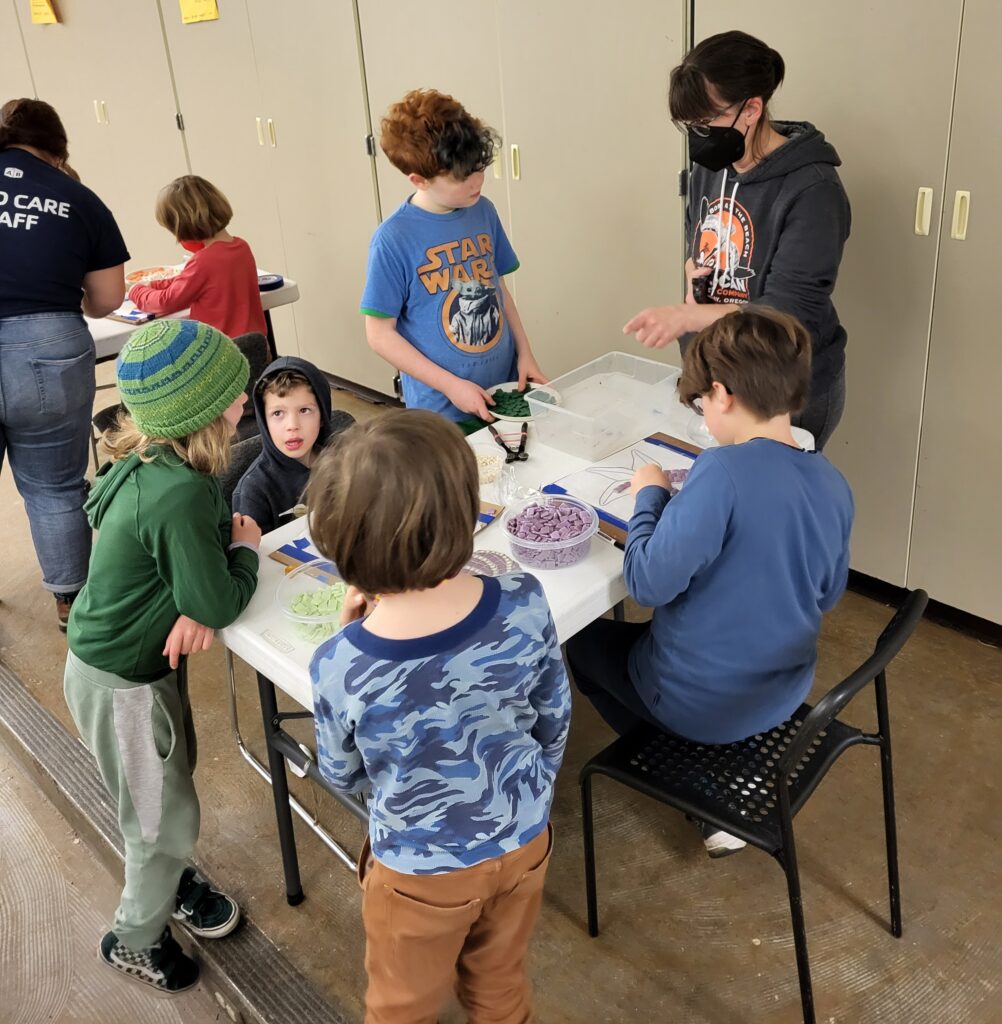

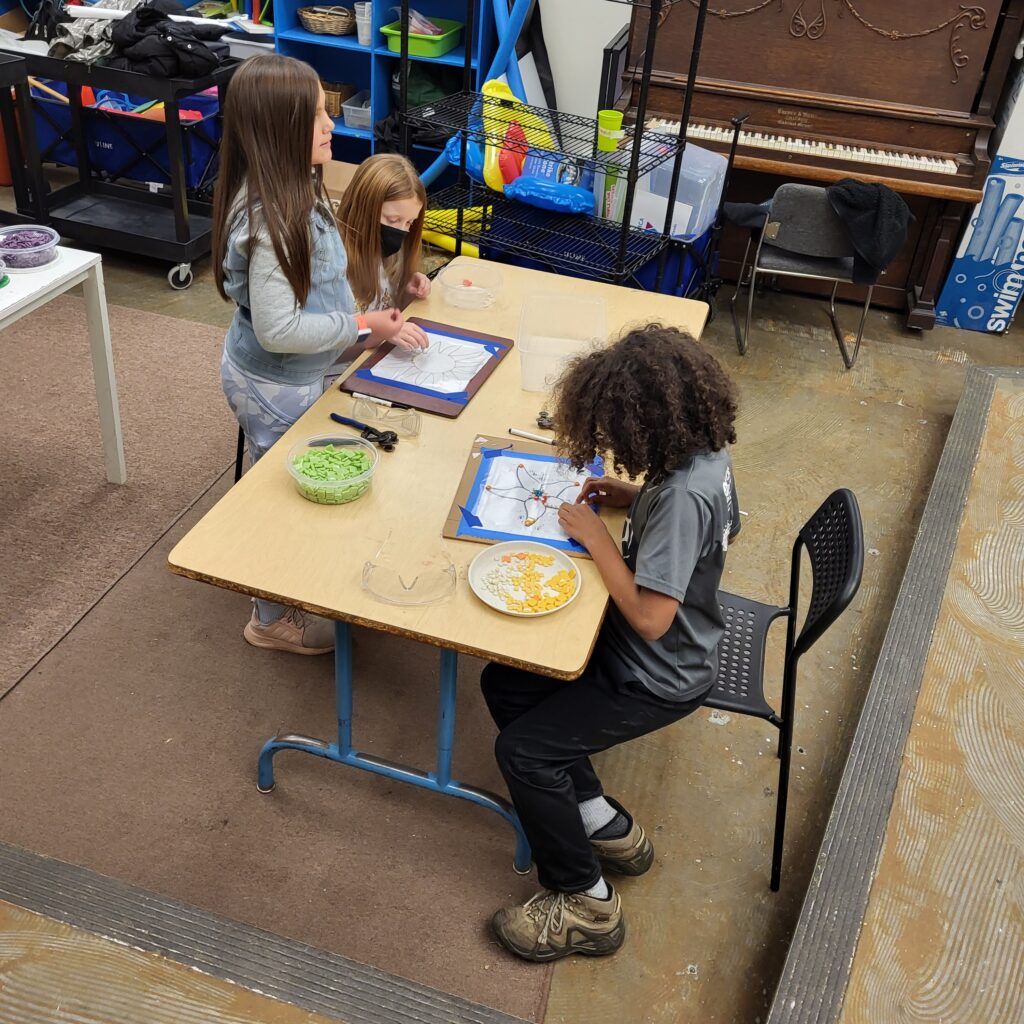
In February, I spent time with the same group of kids, having them help paint some critters that live in the Salish Sea onto Polytab, a parachute cloth that is sealed for use in murals.
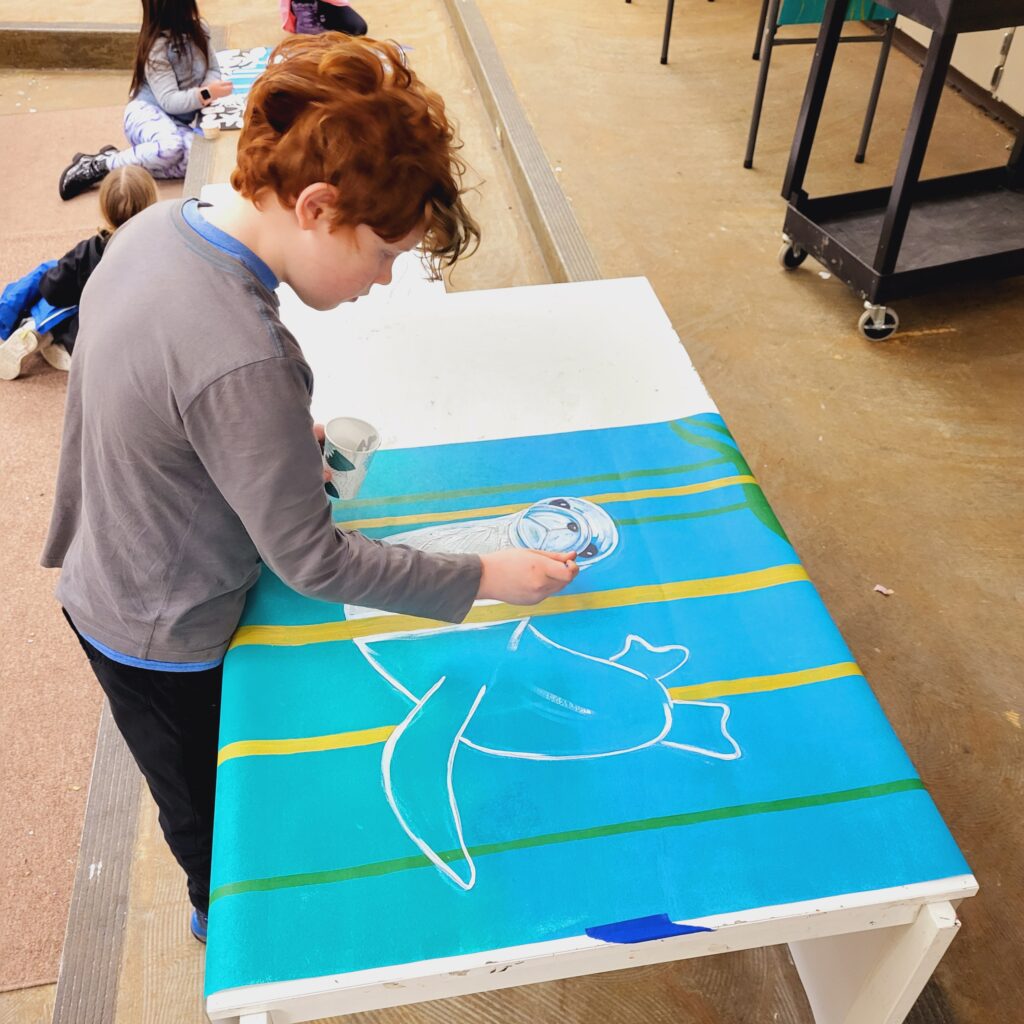
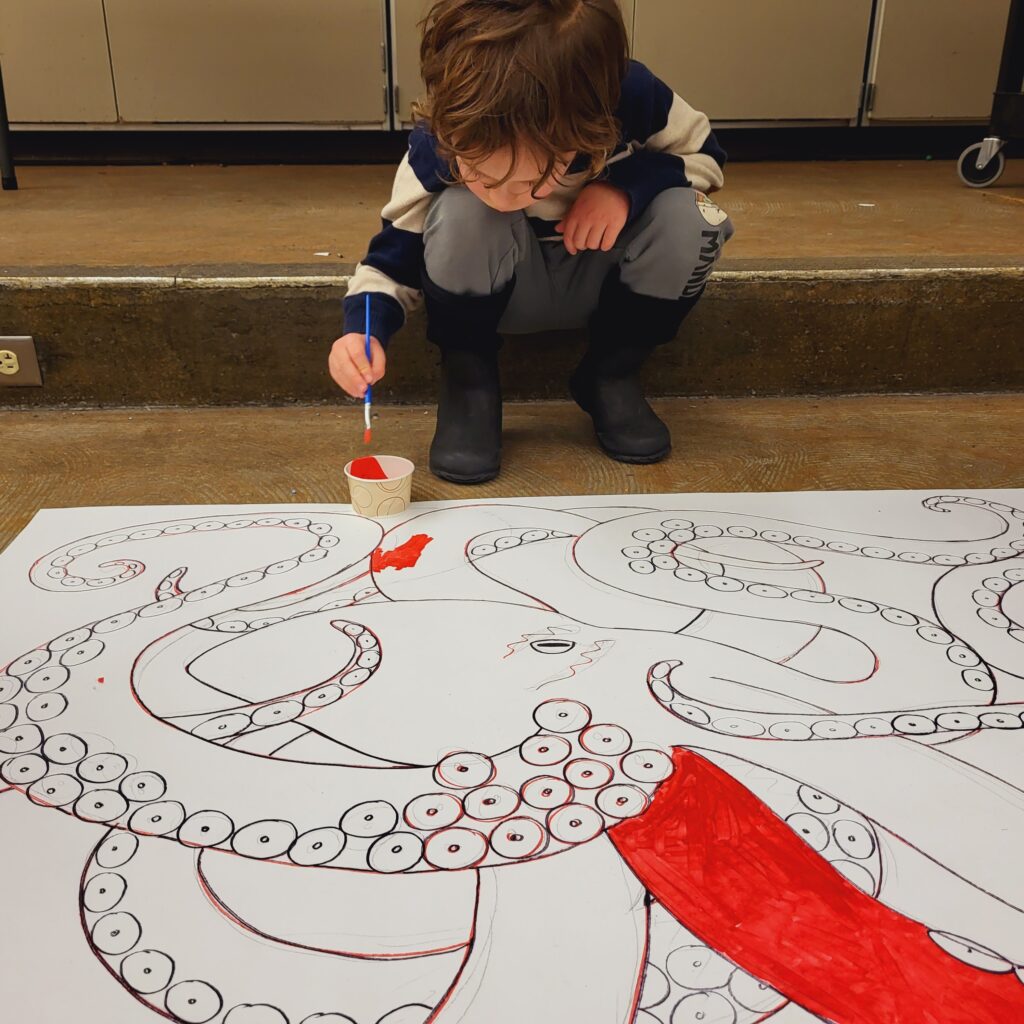
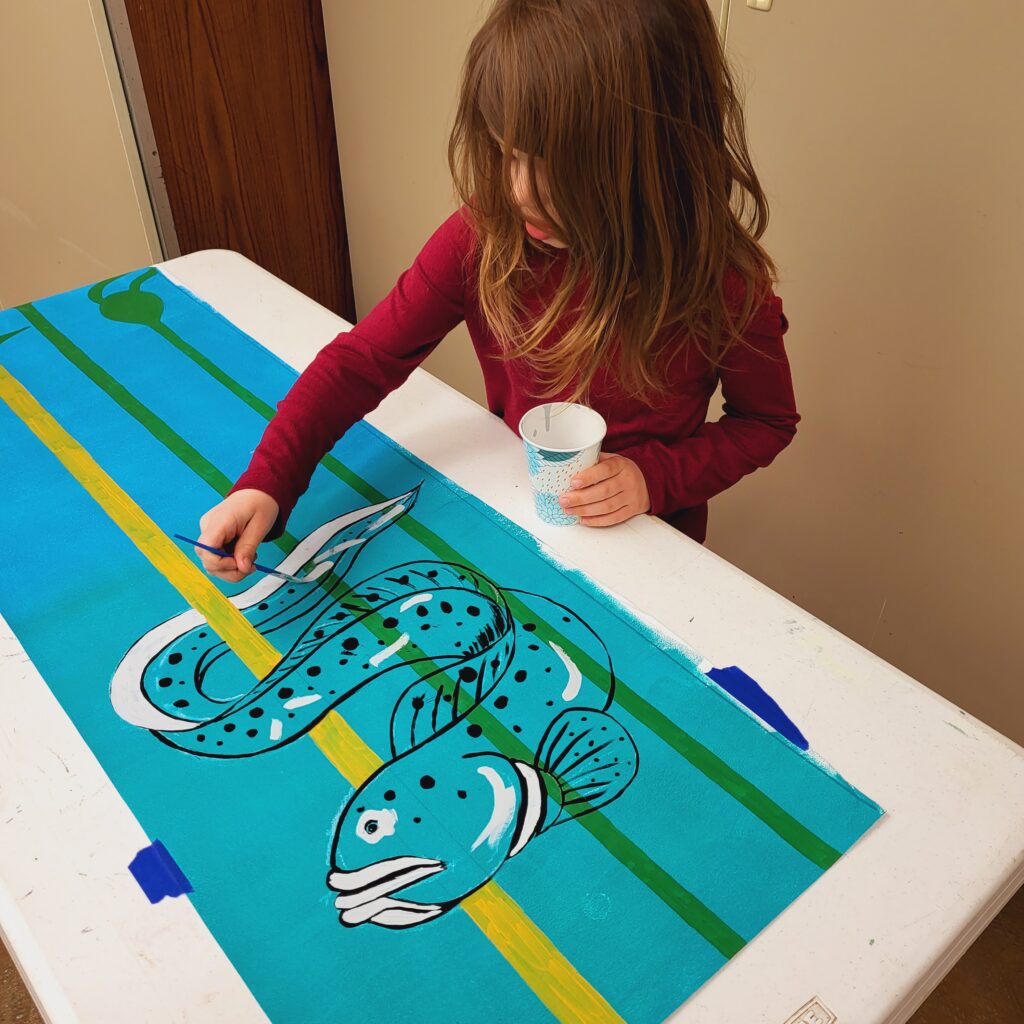
In the studio, I refined the paintings and added more details and prepped the sea stars for installation. I also fabricated octopus tentacles to wrap around the concrete pillar in front of one entryway. In March, I installed the pillar mosaic, as well as the sea stars that would go directly on the walls of the childcare center entryway. There were some glitches that delayed the rest of the installation while we worked on a solution. Finally, at the end of April, the rest of the artwork was mounted onto the rest of the entryway walls.
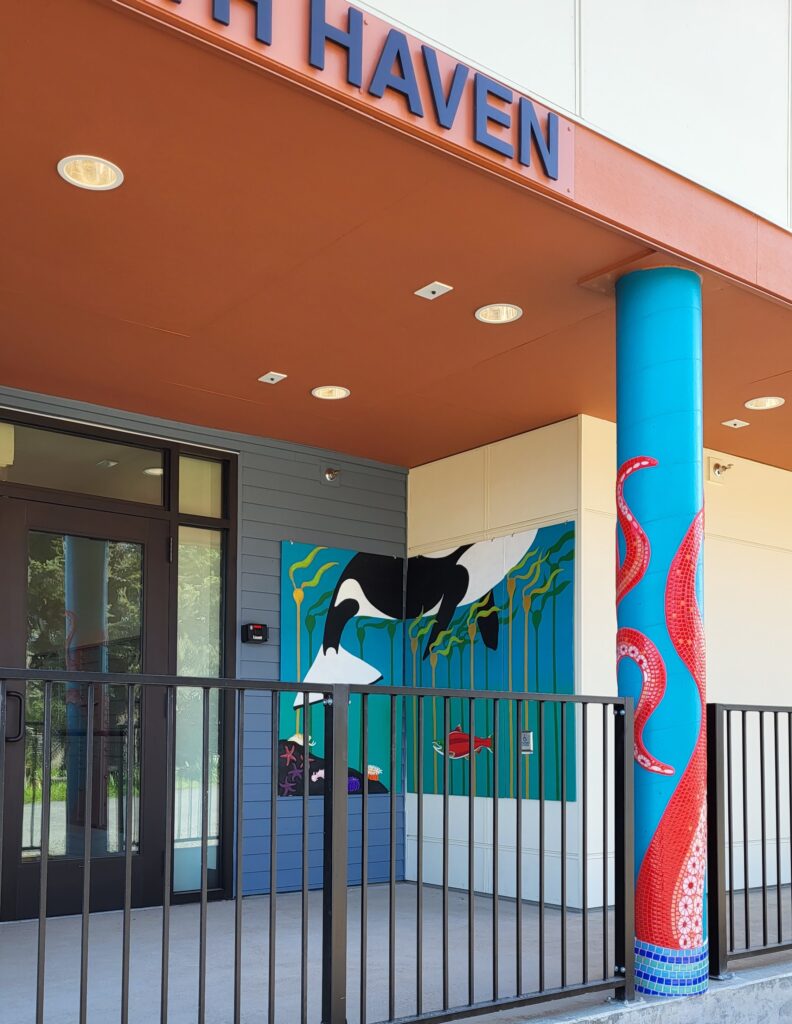
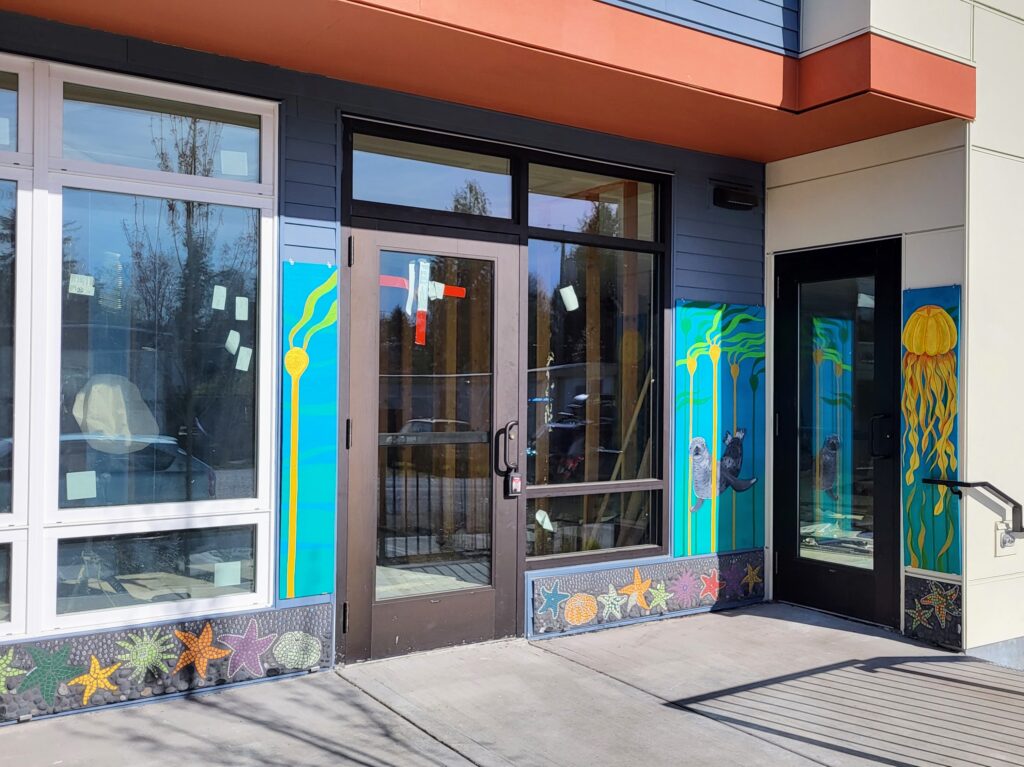
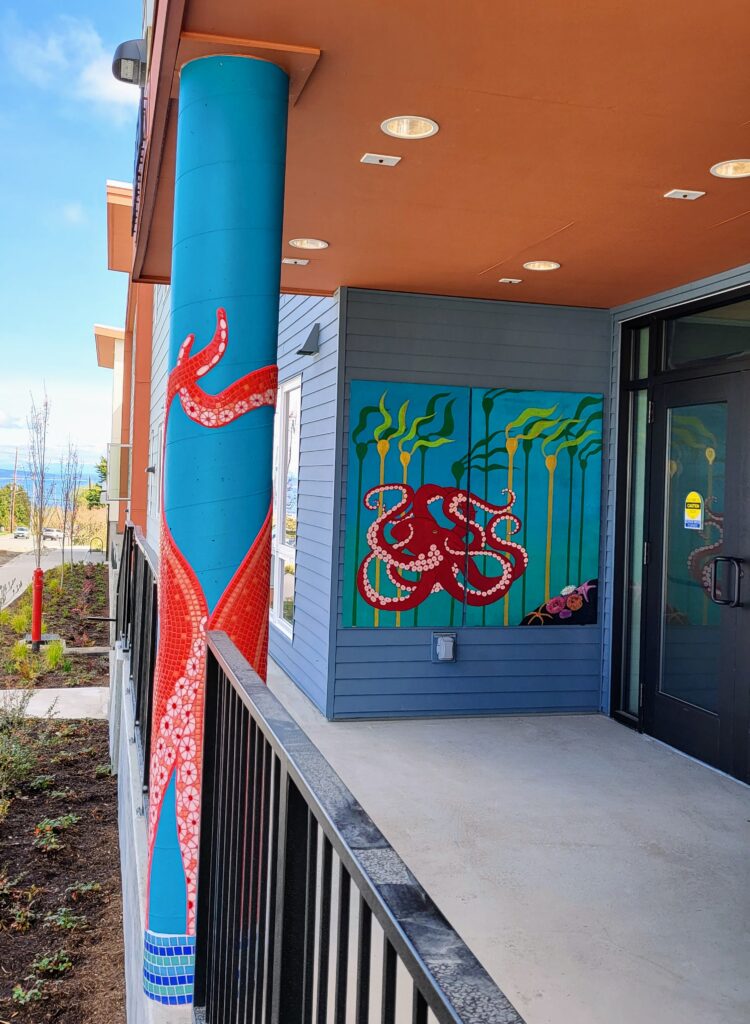
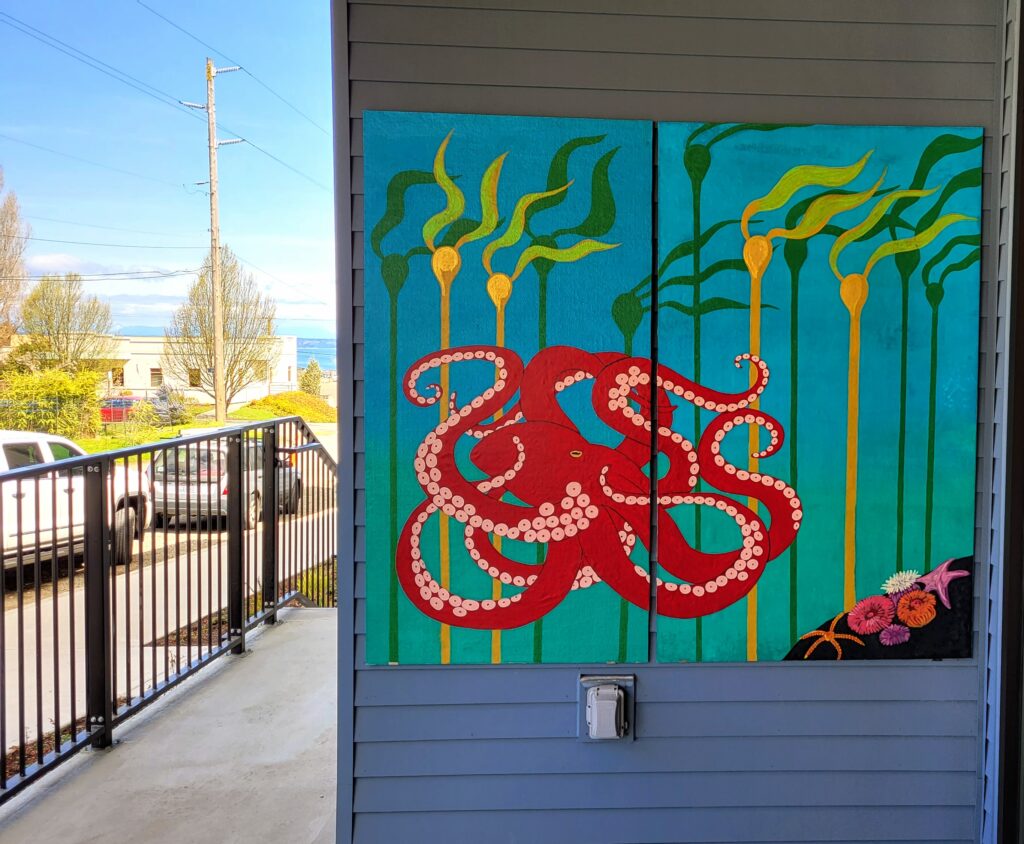
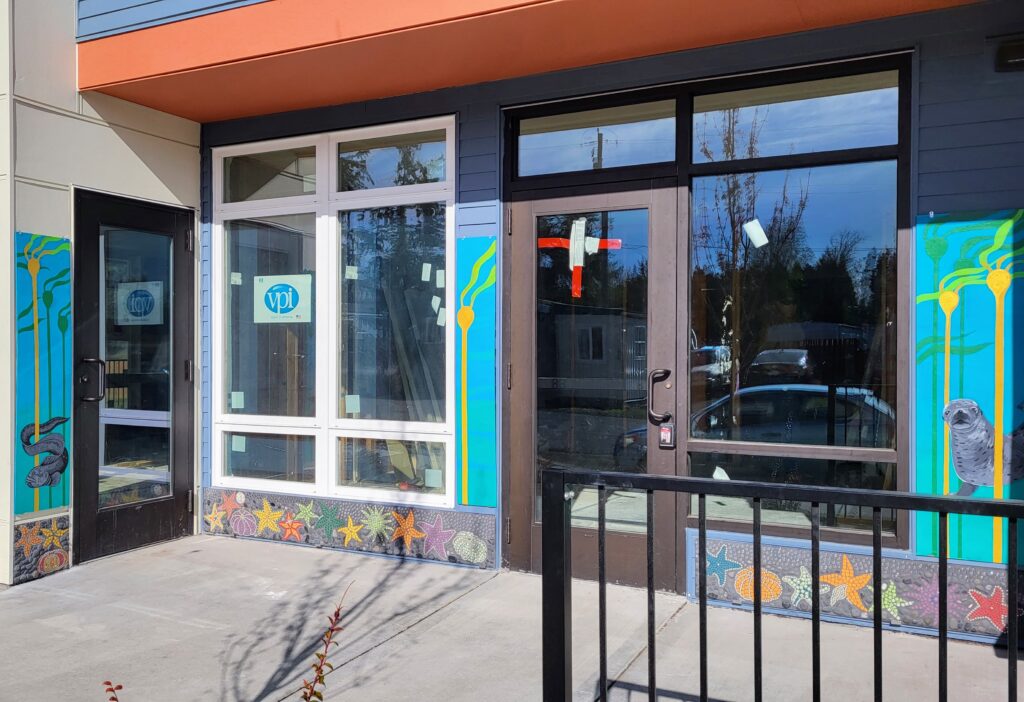
If you are in Port Townsend, or passing through, this project is located next to QFC on 7th and Hendricks. Artist Jean Bradbury is working on murals on the lower end of the building, adjacent to the QFC parking lot. The artwork makes such a huge difference, creating a cheerful, welcoming atmosphere. The kids who helped out will be able to visit for decades to come and take pride in their contributions. *They added their names to the mosaic using letter beads.
The theme of this installation celebrates the Salish Sea with emphasis on the relationship between sea stars and kelp forests. Many of us living in this region don’t realize that the delicate balance of the local aquatic ecosystem is under dire threat. Sea star wasting disease has reduced the population of sea stars severely. Sea stars feed on urchins, which eat bull kelp. Pacific waters have become overpopulated by urchins and they are devouring the kelp forests at an alarming rate. Kelp forests provides essential habitat for much of the wildlife living in our oceans and in the Puget Sound. This is a problem that is affecting all of the Cascadia region sea life, including fish populations. There are several reasons this is happening, including commercial fishing, pollution and most of all: climate change. The artwork is a celebration of the beauty of the Salish Sea, and it is something we should all cherish and protect.

